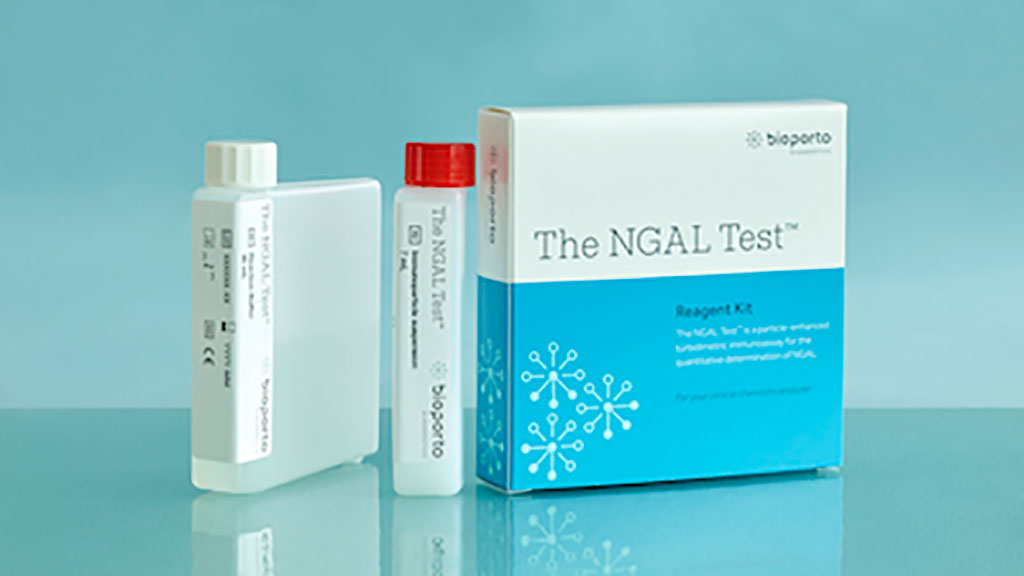Biomarker Test Identifies Patients at Risk of Developing AKI within 48-72 Hours in ICU Setting
Posted on 13 Dec 2023
Acute kidney injury (AKI) is a rapid onset condition where the kidneys fail or sustain damage over a short period, typically hours to days. AKI leads to an accumulation of waste in the blood and challenges the kidneys' ability to regulate bodily fluids. This condition is especially prevalent in patients in intensive care units (ICUs) and can impact other organs including the brain, heart, and lungs. Traditionally, detecting the risk of developing or having ongoing AKI has been challenging due to the reliance on serum creatinine and urine output changes, which are delayed, non-specific, and influenced by factors outside the kidneys, such as nutritional status and muscle mass. Now, a direct real-time marker of kidney cell damage that rises rapidly in response to kidney injury can potentially detect AKI days earlier than serum creatinine, allowing for quicker intervention and improved patient outcomes.
BioPorto’s (Copenhagen, Denmark) ProNephro AKI (NGAL) stands as the first AKI biomarker test authorized for pediatric use (ages 3 months to 21 years) in the United States. This immunoassay quantitatively measures neutrophil gelatinase-associated lipocalin (NGAL) in human urine and is designed to help physicians identify patients at risk of developing or experiencing ongoing, moderate-to-severe AKI within 48-72 hours in an ICU setting. Developed to enable rapid and timely intervention, ProNephro AKI (NGAL) aims to save both kidneys and lives. The particle-enhanced turbidimetric immunoassay is specifically intended for use with the Roche cobas c 501 clinical chemistry analyzer.

ProNephro AKI (NGAL) is recommended for use within the first 24 hours of a patient's ICU admission. It assists in identifying patients who may be at risk of developing moderate to severe AKI (Stages 2/3) within 48 to 72 hours, particularly in cases where initial serum creatinine levels suggest no AKI or only Stage 1 AKI. For patients already showing elevated serum creatinine levels indicative of Stage 2/3 AKI, the test aids in predicting the risk of persistent moderate to severe AKI (Stage 2/3) within the same timeframe. Incorporating this kidney damage marker into clinical evaluations enables clinicians to identify AKI risks sooner and take decisive steps to manage fluid levels, avoid nephrotoxic substances, and potentially avert permanent kidney damage.
“With the FDA’s 510(k) clearance for ProNephro AKI (NGAL) on the Roche cobas c 501 analyzer, we are excited to launch BioPorto’s US commercialization efforts,” said Tony Pare, BioPorto’s Chief Executive Officer. “This milestone will provide the first STAT laboratory test to aid in the assessment of AKI in pediatric patients. Pediatric intensive care is a beachhead where we aim to demonstrate the life- and cost-saving value of ProNephro AKI (NGAL). Pediatric is the first segment of the $1.2 billion US and $3 billion worldwide markets for AKI detection.”
Related Links:
BioPorto







 Analyzer.jpg)





